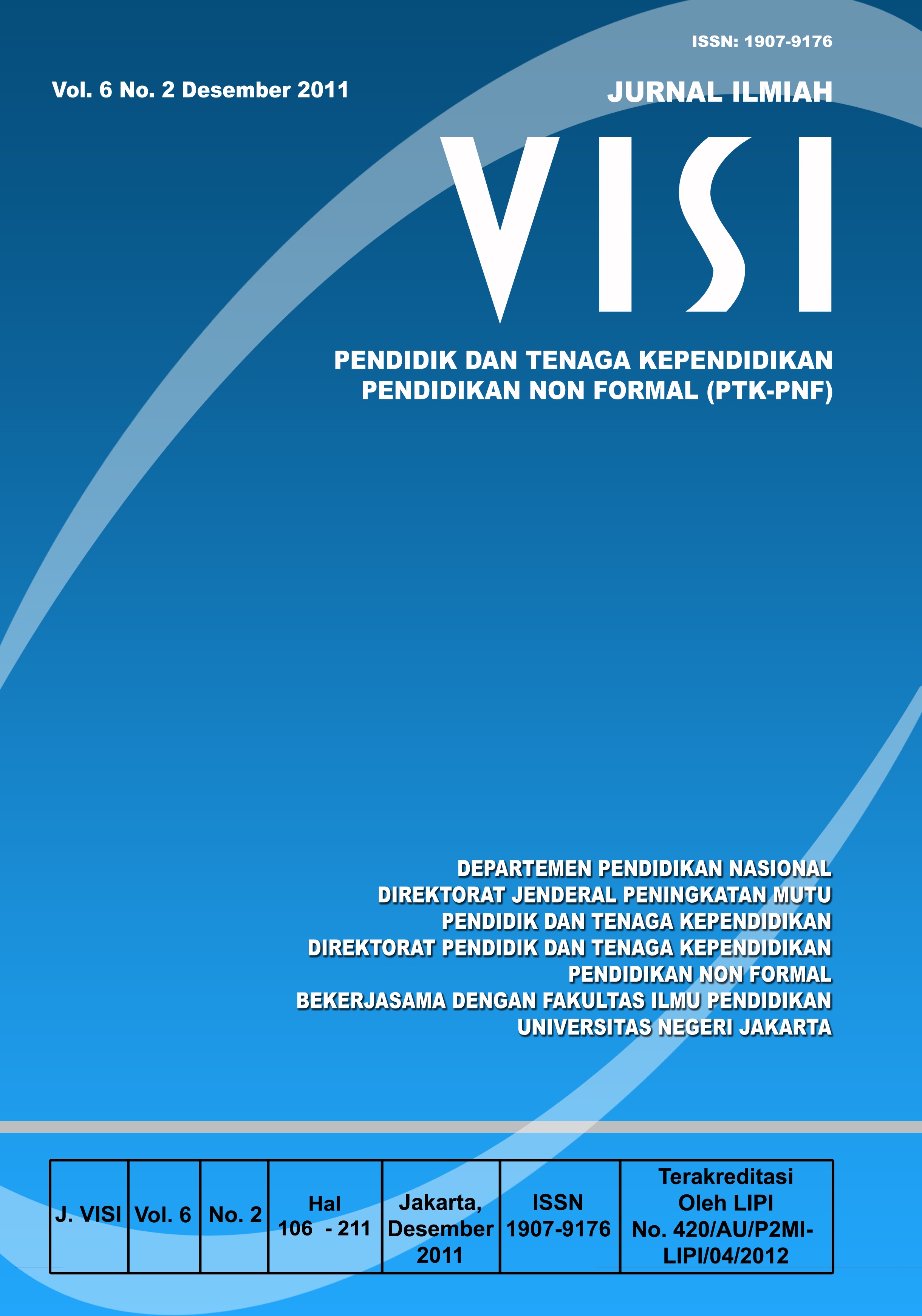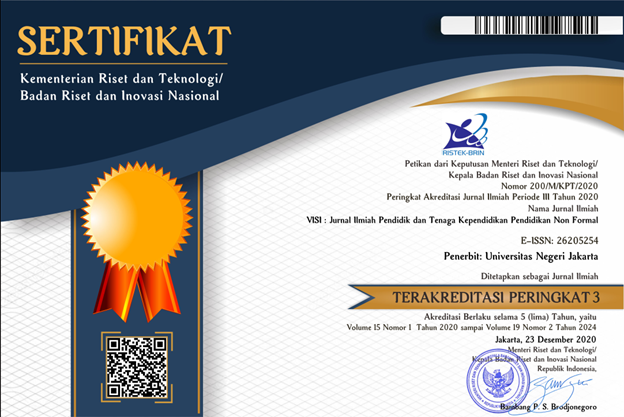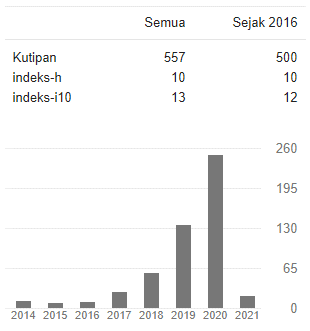BELAJAR BERBASIS ANEKA SUMBER DALAM PENDIDIKAN NONFORMAL
DOI:
https://doi.org/10.21009/JIV.0602.7Keywords:
nonformal education, active learning, student-centered learning, teacher-centered learning, resources-based learningAbstract
Paradigm shift in education has made significant change in the roles of teacher and student in teaching and learning process. In the new paradigm the student become the axis of teaching and learning process. The student makes the choice in learning objective, learning materials, and learning resources based on his/her learning style. The teacher acts more as a learning designer, learning manager, and tutor. The learning theory development tends to provide the learner with learning skills to enable them to be independent learners to life-long learning. However, the learning theories are mostly discussed in the formal eduacation situation, though the theories are also apllicable for nonformal education. This article discusses how the current learning theories can be implemented in nonformal education. The discussion is limited on the application of learning resources development in early childhood education and learning community centers. The discussion ends with a strong conclusion that resources based learning theory are potential and need to apply in nonformal education under a condition that there should be some changes in the roles of teachers/instructors, learners, and the nonformal institution.
Downloads
Published
How to Cite
Issue
Section
License
Authors who publish with this Journal agree to the following terms:
- Author retain copyright and grant the journal right of first publication with the work simultaneously licensed under a creative commons attribution licensethat allow others to share the work within an acknowledgement of the work’s authorship and initial publication of this journal.
- Authors are able to enter into separate, additional contractual arrangementfor the non-exclusive distribution of the journal’s published version of the work (e.g. acknowledgement of its initial publication in this journal).
- Authors are permitted and encouraged to post their work online(e.g. in institutional repositories or on their websites) prior to and during the submission process, as it can lead to productive exchanges, as well as earlier and greater citation of published works.
- Users/public use of this website will be licensed to CC BY-NC-SA Creative Commons Attribution-NonCommercial-ShareAlike 4.0 International License









